
Ingredient
Lemon thyme
The Zesty Herb
Lemon thyme is a small perennial herb with narrow, lemon-scented leaves and delicate purple flowers. It possesses a refreshing citrus aroma and imparts a subtle lemony flavor to dishes. Its vibrant green leaves are tender and have a slightly fuzzy texture.
Origins and history
Lemon thyme is native to the Mediterranean region and has been used in culinary and medicinal practices for centuries. It was highly valued by ancient Greeks and Romans for its aromatic properties and believed to have therapeutic benefits. Lemon thyme has since become popular worldwide and is widely cultivated for its culinary uses.
Nutritional information
Lemon thyme is low in calories and a good source of vitamin C, vitamin A, and dietary fiber. It also contains essential minerals like iron, calcium, and manganese.
Allergens
There are no known allergens associated with lemon thyme.
How to select
When selecting lemon thyme, look for fresh, vibrant green leaves that are free from wilting or discoloration. The leaves should have a strong lemon scent when gently crushed. Opt for organically grown lemon thyme to avoid any pesticide residues.
Storage recommendations
To maintain the freshness of lemon thyme, store it in a plastic bag or airtight container in the refrigerator. Alternatively, you can place the stems in a glass of water, cover them with a plastic bag, and refrigerate. Use within a week for the best flavor.
How to produce
Lemon thyme can be easily grown in a sunny spot in your garden or in containers. It thrives in well-drained soil and requires regular watering. Prune the plant regularly to encourage bushier growth and harvest the leaves as needed.
Preparation tips
Lemon thyme is a versatile herb that can be used in a variety of dishes. It pairs well with poultry, fish, vegetables, and salads. Sprinkle fresh lemon thyme leaves over roasted chicken or fish for a burst of citrusy flavor. It can also be used in marinades, dressings, and herbal teas.
Culinary uses
Lemon thyme is commonly used in Mediterranean, Middle Eastern, and French cuisines.
Availability
Lemon thyme is widely available in grocery stores, supermarkets, and farmers markets.
More ingredients from this category

Creeping thyme
The Fragrant Delight of Creeping Thyme
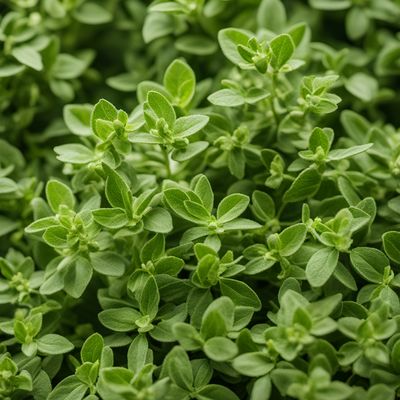
Cretan oregano
The Fragrant Herb of the Mediterranean

Winter savory
Savoring the Season: Exploring the Delights of Winter Savory
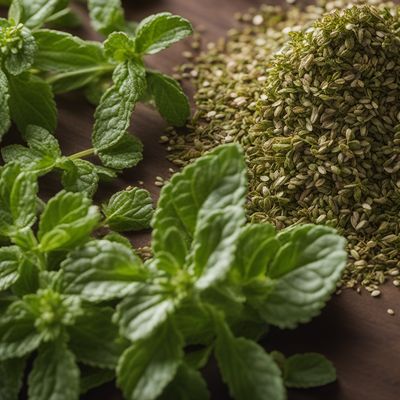
Syrian oregano
The Exotic Herb: Syrian Oregano

Mastic thyme
The Fragrant Herb: Unveiling the Aromatic Delights of Mastic Thyme

Summer savory
"The Herb of Warmth and Flavor"
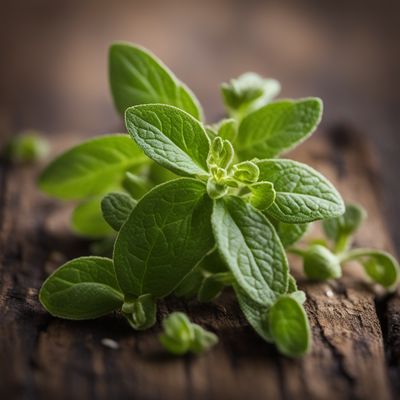
Oregano
The Herb of Mediterranean Delights
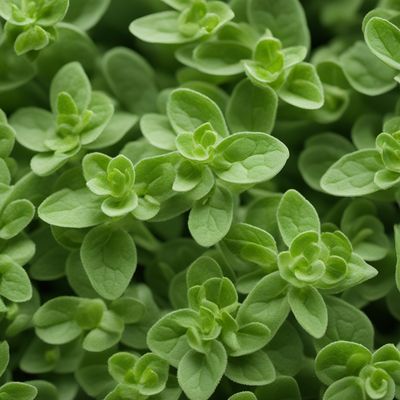
Marjoram
The Fragrant Herb: Marjoram

Lemon savory
The Zesty Herb: Lemon Savory and its Citrusy Twist

Thyme
The Fragrant Herb: Thyme
Recipes using Lemon thyme » Browse all
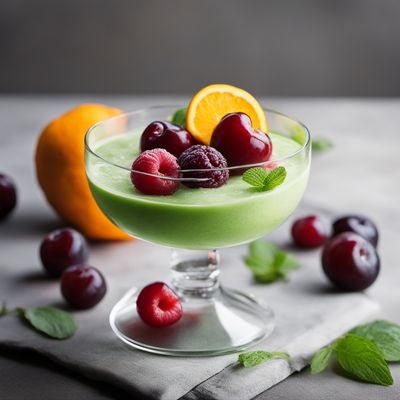
Extremaduran-style Fruit Sorbet
Fruity Delight: Extremaduran-inspired Sorbetes

Tanzanian-inspired Spiced Chicken Sandwich
Zesty Zanzibar Chicken Sandwich
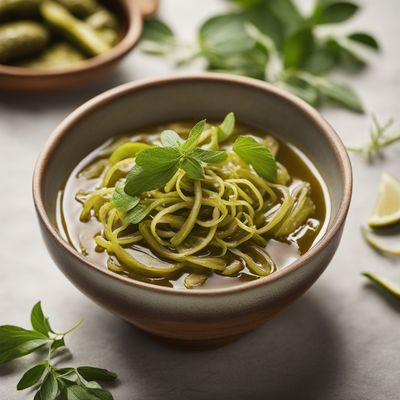
Australian-style Ginger Pickles
Aussie Ginger Delight: Tangy and Spicy Pickled Goodness

Bhutanese-inspired Kostelske Hrge
Spiced Delight: Bhutanese-inspired Kostelske Hrge

Galician-style Fish Sandwich
Mar de Galicia: A Taste of the Sea in a Sandwich

Italian Orange and Pomegranate Salad
Sicilian Citrus Delight

Macedonian-style Bar au Beurre Blanc
Mediterranean Delight: Macedonian-style Buttered Sea Bass
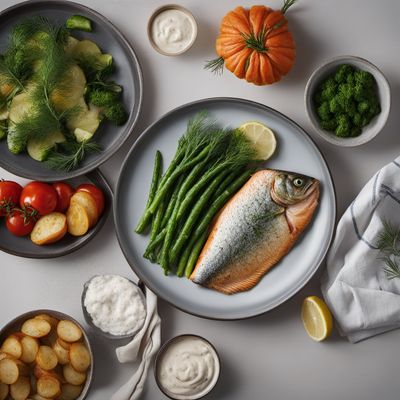
Pan-Fried Fish with Creamy Dill Sauce
Savor the Flavors of Sweden: Pan-Fried Fish with Creamy Dill Sauce
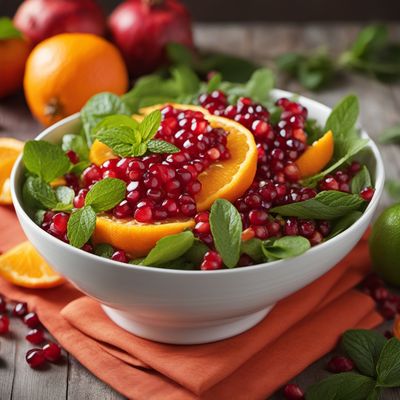
Ensalada de Naranjas y Granadas (Orange and Pomegranate Salad)
Citrus Delight: A Refreshing Spanish Salad Bursting with Flavors

Classic Grilled Chicken Sandwich
Savory Grilled Chicken Delight

Mantecadas de Astorga
Astorga Delights: A Buttery Spanish Treat
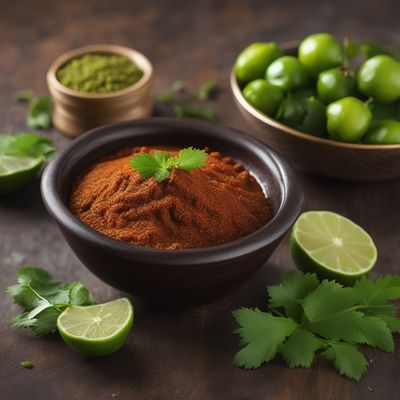
Amrood ki Chutney with a Twist
Tangy Guava Chutney Delight